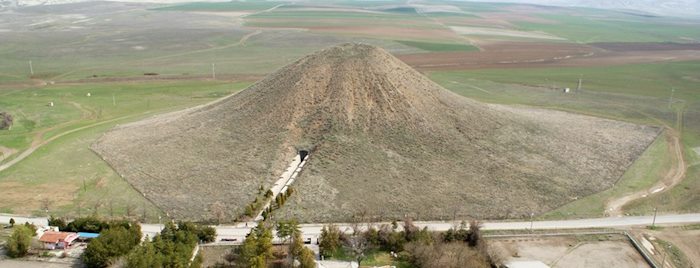Gordion is the ancient city that was the historical capital of Phrygia. The city of Gordion is located at the junction of the main roads traversing Anatolia. It is rich in rivers and water resources. Additionally, the surrounding area is suitable for dry farming and animal husbandry. It is believed that the Phrygians were drawn to this location due to the potential it presented due to its geographical location.
After Gordios who was the first king of the Phrygia, his son Midas came to power and the Phrygia became a very powerful civilization. In mythology, it is believed that Midas turned everything he touched into gold. This legend hints to us that Gordion was a very wealthy city.

Many musical instruments today were developed by this civilization. Thousands of years-old motifs on Anatolian carpets date from the Phrygian period.
At the same time, Phrygian state was very developed in mining and wood processing. It is also a fact that the technology used by the Phrygians, especially in making safety pins, was very advanced compared to that period. Today, we find Phrygian pins in cities such as Ephesus, Hierapolis, and many more.
The ancient entrance gates, palaces within the city walls, and around 80 grave hills are among the ruins that have survived to the present day, and these works preserve their magnificence from the depths of history to the present day.
Gordion in the UNESCO World Heritage List
In recognition of its historical and cultural significance, Gordion has been included in the UNESCO World Heritage Main List. This prestigious status was granted after years of preparation and investigation, with all relevant documentation being submitted to UNESCO. The inclusion of Gordion on this esteemed list further highlights its importance as an extraordinary archaeological site.